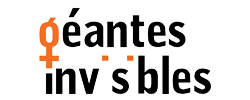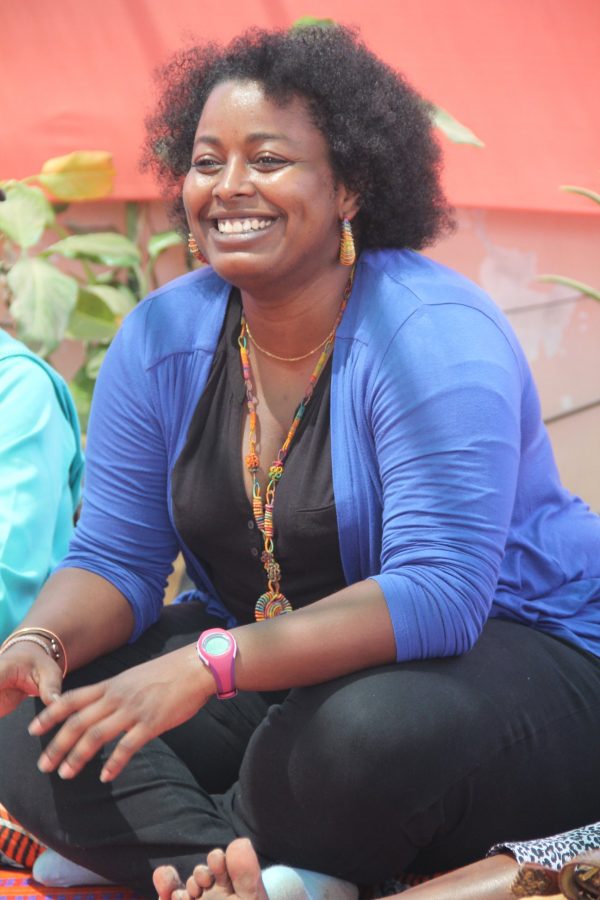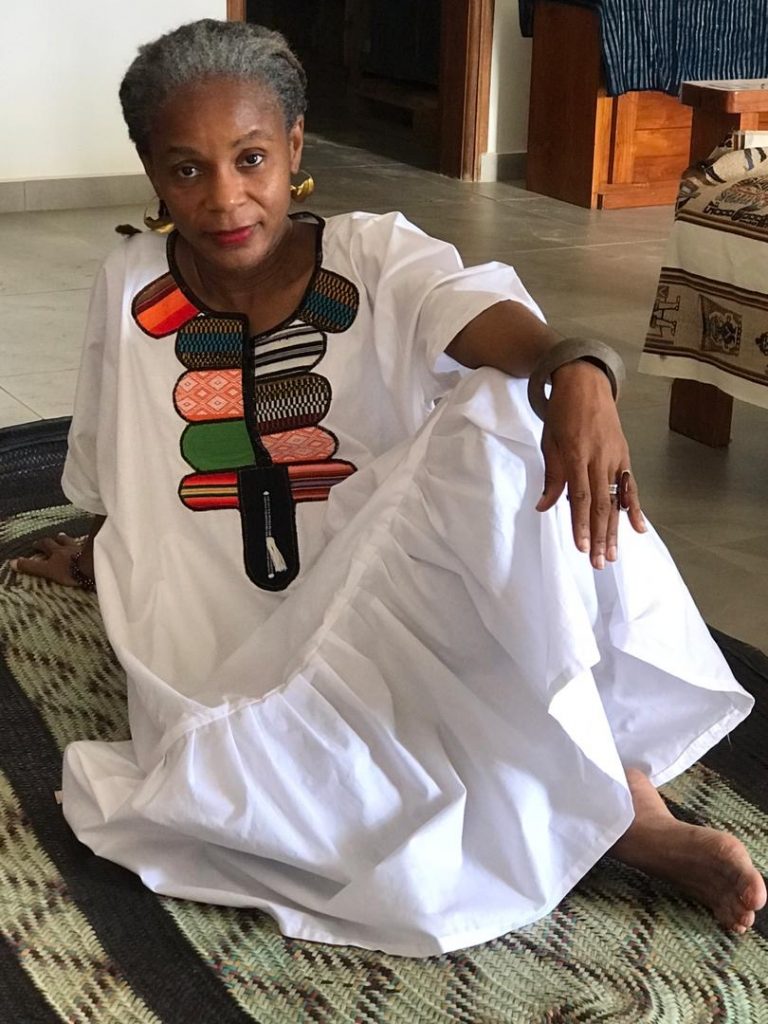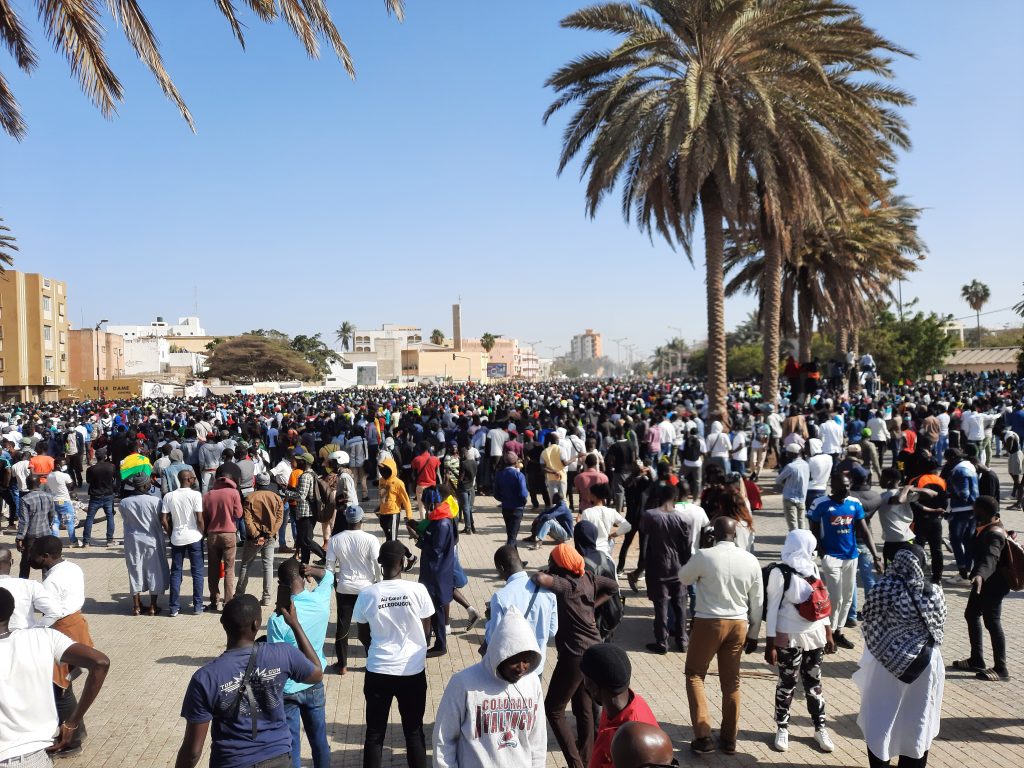Khaïra Ndèye Thiam
Challenging the entrenched patriarchal structure of power is no small undertaking. Indeed, feminism, whose main project is to bring back a certain form of egalitarian balance, has been doing so for two and a half centuries, all over the world, occupying all fields of human activity equally. This militancy is not without resistance to change among some men and women, more paradoxically. This confrontation is sometimes expressed in an extremely violent manner, or more insidiously and with low intensity, by undermining the self-esteem of girls, from a very young age, in order to extinguish in them any inclination to revolt against this absurd system of domination.
L’Afrique noire n’échappe pas à ces problématiques et le contexte rajoute des difficultés supplémentaires telles que : la précarisation des droits humains les plus élémentaires quand ils existent, une pression du religieux et du traditionnel qui intervient toujours dans la gestion des affaires de la cité, des ethnicités et des rivalités identitaires héritées des époques pré-coloniales ou coloniales et non encore résolues, des moyens matériels, techniques et technologiques bien en dessous des standards internationaux etc. Tout ceci concoure à trouver, certes, des manières créatives et originales de militer, mais rajoute des barrières additionnelles et donc une charge mentale spécifique à celles et ceux qui luttent pour l’égalité des genres.
This external reality induces, at the inter-individual and intra-individual level, an obligation to expend energy in group structuring, discussions, action preparations, projects, information work etc. which have a cost in terms of physical and mental health, especially in terms of wear and tear. Moreover, to put forward feminist positions and to try to get out of enslavement exposes activists to insults, quolibets, isolation, stigmatization, predation, physical and sexual violence, institutional violence and deprivation of fundamental freedoms as retaliatory measures etc. All of this with sometimes discrepancies and internal conflicts between the values that they defend and the internal values that structure them and structure their identity or even sometimes sclerotize their thinking. Discrepancies and conflicts that the subjects try to resorb or for which they try to find waiting solutions by continuing the work of militancy.
Les lieux d’écoute et de soutien restent peu fréquents et les personnels, quand ils sont qualifiés, le sont parfois très peu pour ces cas de figures précis. En effet, à la base, les professionnels du psychisme sont surtout formés à rechercher à l’intérieur des sujets les motifs conscients et inconscients de telles ou telles problématiques. Moins à valider la réalité de la violence systémique, à traiter les effets du système patriarcal totalitaire sur celles et ceux qui en sont quotidiennement victimes, à questionner leur propre adhésion en tant que sujet ou professionnel à ce système patriarcal, à prendre en compte la militance et ses répercussions sur les sujets. Aussi faut-il d’une part tomber sur des soignants qui ont été formés à diverses approches et qui sont capables de remettre en perspective leurs savoirs et leurs compétences et qui, de surcroit, soient « feminist friendly ». Ce desétayage social et institutionnel se superpose à un manque criant d’étayage émotionnel personnel des sujets et peut exposer à de l’isolement, de la solitude, précariser le tissu relationnel voir faire éclore des pathologies physiques comme psychiques (burn-out, dépression, troubles anxieux plus ou moins desocialisants etc). Pour répondre à ces différents niveaux de mal-être, il est nécessaire de déployer davantage toutes les solidarités possibles dans des expériences positives et bienveillantes interindividuelles ou groupales. Toutefois, il peut être important d’avoir aussi de l’espace et du temps à soi pour se recentrer et faire le tri.
In this respect, writing can be an important support and an outlet that sometimes proves to be therapeutic. Writing authorizes the motor discharge as well as the letting go by the very gesture of the trace dug in the paper or the coded signs on the computer. Writing allows us to take stock, to put into words our experiences (emotions, feelings, situations we have been through...), to reappropriate parts of our history, our internal coherence, our continuity of existence. This activity gives voice to what could have been disqualified or could not be said because of lack of space or because of social censorship. It allows the subject's lived experiences to be re-seized and, through the operation of distancing that writing operates, to empty them, in whole or in part, of their negative or toxic valence and to give them another status. A status other than the aggressive or traumatic one they may have initially had, without denying it. Writing also means saving oneself from the effects of confusion linked to the events experienced, from social injunctions that are incoherent with the values defended or the internal logic of the subject. It is a taking of distance and a possibility to depend on the bonds of hold which one is not always conscious of, in the dynamics of the relations of the everyday life. The catharsis thus obtained makes it possible to alleviate pain and often to free oneself from it. Saying things, writing them down is already transforming them, it is getting out of the brutality of the event and it is also making one's experiences shareable. This aesthetic and aesthetic sharing, because sensual and creative, can be addressed to one or more others and receive an unexpected and benevolent group support, source of new personal transformations. It is also a way to transmit a singular experience of one's commitment, to spread ideas and to make emulators by rallying new individualities to these feminist movements. To be a person who passes on evil to words is also a marvelous power to change the status of the victim, locked up in the closed door of violence sometimes, about one's own history, active and capable of bringing salutary changes to societies. Writing and its diffusion gives the possibility, as here, of knowing that others are there, invisible but present through their writings, on which to build to continue to move forward. In this way, writing fosters opportunities for resilience.



